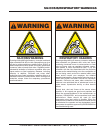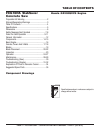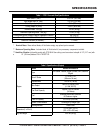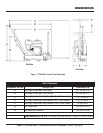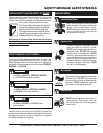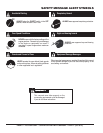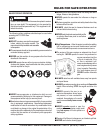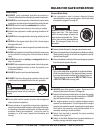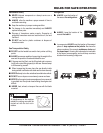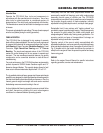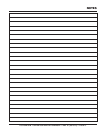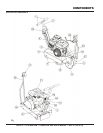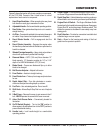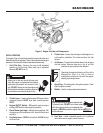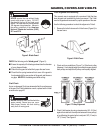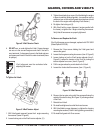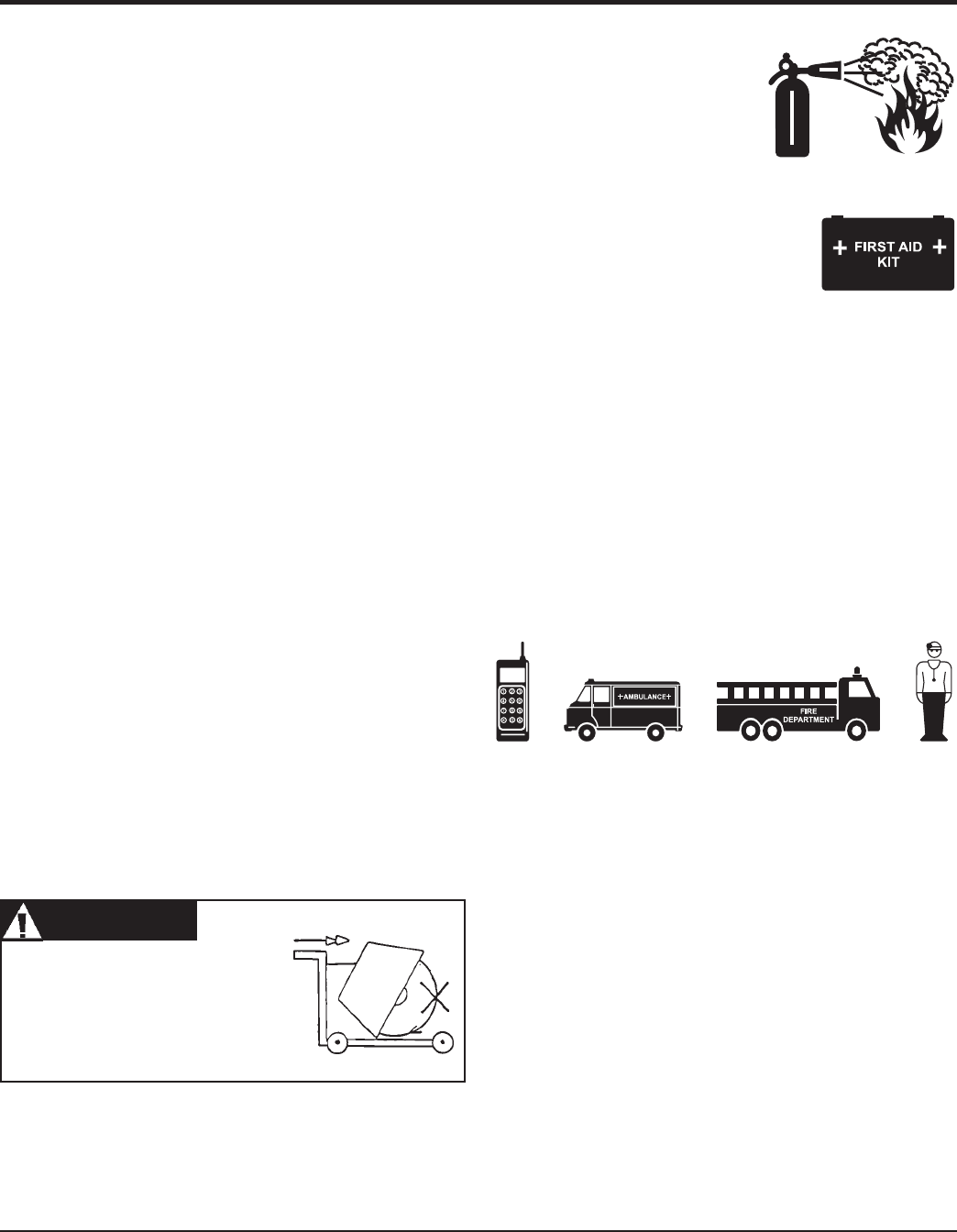
FCG16HA SAW • OPERATION AND PARTS MANUAL — REV. #1 (03/19/10) — PAGE 11
RULES FOR SAFE OPERATION
Maintenance Safety
NEVER lubricate components or attempt service on a
running machine.
ALWAYS allow the machine a proper amount of time to
cool before servicing.
Keep the machinery in proper running condition.
Fix damage to the machine immediately and ALWAYS
replace broken parts.
Dispose of hazardous waste properly. Examples of
potentially hazardous waste are used motor oil, fuel and
fuel filters.
DO NOT use food or plastic containers to dispose of
hazardous waste.
Emergencies
ALWAYS know the location of
the nearest
fire extinguisher
.
ALWAYS know the location of the
nearest
first aid kit
.
In emergencies ALWAYS
know the location of the nearest
phone or
keep a phone on the job site
. Also know the
phone numbers of the nearest
ambulance
,
doctor
and
fire department
. Knowing this information is invaluable
in the case of an emergency and could keep a serious
situation from becoming a tragic one.
Saw Transportation Safety
■
DO NOT use the handle bars and/or front pointer as lifting
points.
■
ALWAYS use ramps capable of supporting the weight of the
saw and the operator to load and unload the saw.
■
If the saw must be lifted, use the lifting bale and a crane or
forklift with a rated lifting capacity for the saw. Never attempt
to lift the saw by yourself.
■
When transporting the saw, place the saw directly inside
towing vehicle truck-bed or onto trailer and tie-down securely.
■
NEVER attempt to tow the untrailered saw behind a vehicle.
■
DO NOT use on slopes or on extremely uneven surfaces.
■
NEVER tip the engine to extreme angles as it may cause oil
to gravitate into the cylinder head making the engine start
difficult.
■
NEVER load, unload, or transport the saw with the blade
mounted.
WARNINGWARNING
WARNINGWARNING
WARNING
All displacement of the machine
outside the cutting area shall be
carried out with the tool not in
rotation.



